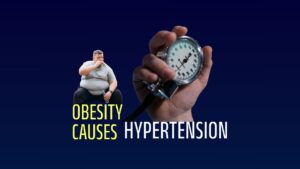
Vidhi Dave
Bariatric Dietician & Content Writer

Weight Gain in Different Life Stages: From Teenage to Menopause

Transitions are a part of life’s journey, and each one carries with it special experiences and difficulties. Gaining weight is a factor that frequently occurs during various life phases. Our bodies undergo enormous changes that might have an impact on our waistlines, from the exploring teenage years to the transformative menopause process.
There is always constant concern about gaining weight. To keep a healthy weight and overall well being, it is essential to understand aspects that can cause weight gain. By giving insight on the physiological, hormonal, and lifestyle elements that affect body weight, one can make choices that will effectively manage their weight and advance their health by getting knowledge of these stages.
Teenagers: Teenagers gradually put on weight as they get mature. Although healthy weight gain is important, excessive weight growth and the accumulation of extra fat can be cause for concern. Teenager’s sedentary lifestyles, which include little physical activity, and poor nutrition are the two most common reasons for major weight gain. Having access to junk food and having the flexibility that comes with having pocket money can also lead to the development of bad eating habits. Regular binges of processed and fast food can result in weight gain. Teenagers who often stay up late, sleep for shorter amounts of time, and have poor sleep quality are likely to eat more calories, which leads to obesity. Teenage girls with conditions like PCOS may acquire weight because of their underlying health issues.
Young to Adult: When compared to adults of any other age group, young adults aged 20 to 39 have the highest chance of being overweight or developing obesity in the next decade of their lives. Young people go through significant life transitions. They might start working, attend university, or leave home for the first time; the habits they develop at this time may follow them into adulthood. One may spend an hour or more travelling to and from work, sitting at a desk for eight or more hours a day, and having so much on one’s plate that there is no time to go for a walk or exercise during the workday. Adult obesity has a number of negative health effects, such as a higher risk of type 2 diabetes, heart disease, stroke and musculoskeletal conditions.
Pregnancy & Postpartum: Pregnancy is a magnificent journey filled with excitement and joy as a new life develops inside you. Many new mothers experience weight gain during the postpartum period, or the time after pregnancy. The new mother often eats a lot of calories because breastfeeding and giving birth both require a lot of energy. As she adjusts to hormonal and emotional changes, she even eats more out of the need for reward-seeking. Pregnancy can also contribute to long-term weight gain because reducing weight gained during pregnancy isn’t usually simple. Women who become pregnant again without losing their previous pregnancy weight are more likely to be overweight or obese after giving birth. Regular prenatal check-ups and consultations with medical professionals can help in the tracking of weight gain and the resolution of any concerns. focusing on body positivity and knowing that weight gain is a natural and necessary part of pregnancy might help to reduce anxiety. Engaging in safe and appropriate physical activity, such as prenatal exercise, can also help with the path to a healthy weight gain.
Menopause: Menopause is a normal process that happens when a woman’s ovaries stop releasing eggs and her body produces less estrogen and progesterone than it used to. As a result of the decline in estrogen and progesterone along with ageing, body metabolism also changes. Loss in muscle mass, which lowers the amount of calories burned. Fat builds up if calories aren’t being burned as quickly. In addition to genetics, inadequate sleep and a sedentary lifestyle are factors. Our metabolism slows down, causing us to lose muscle mass and store more fat, which results in additional weight gain. And the cycle goes on. A decrease in female hormones during menopause may result in:
Bone weakening (osteoporosis) and a higher risk of fractures, as well as an increased risk of heart attack and heart disease, high blood pressure, and stroke.
Weight gain can occur at various times of life due to a combination of hormonal, physiological, and behavioural variables. People can take proactive measures to effectively manage their weight by becoming aware of these factors. Promoting healthy eating habits, regular physical activity, stress management, and seeking support during various life stages can all help to maintain a healthy weight and general well-being. Remember that each stage of life presents its own set of problems, and approaching weight management with a comprehensive and personalised strategy is essential for achieving and maintaining optimal health.






